Following The Film Stage’s collective top 50 films of 2023, as part of our year-end coverage, our contributors are sharing their personal top 10 lists.
Another year of films. Another year of depressingly hopeful favorites.
That’s not to say I didn’t love any comedies. The ones I did just had a tendency to punch you in the gut somewhere along the line. It’s a truth that probably says more about me than I could ever articulate on my own. Grief simply resonates—especially when it can hit hard while still allowing the affected character on-screen to smile in the face of it.
We need a little of that hope in the real world. An authentic, complex hope to mirror the dark, politicized era in which we currently reside. One where anyone who isn’t depressed twenty-four-seven is more than likely not paying attention to anything that’s happening beyond their own personal gain. It’s the real reason why a phenomenon like Barbenheimer played as well as it did. Neither half of the portmanteau made my list (although both Barbie and Oppenheimer are present in my Top 50), but I cannot deny their success at bringing “existential crisis” into the mainstream conversation.
If I were to single out a theme for the below fifteen films, I don’t think I could find one better than that. The existential crises brought on by faith, purpose, love, and loss. The struggle to reconcile past and present. The discovery of a path forward to bridge the myriad facets of a fractured identity. The introspective journey to understand how true joy cannot form without heartbreak.
So often we gravitate towards cinema for an escape from or to better understand the world around us. I guess the best of 2023 for me are those titles that offered a window into the soul to better understand us and, in the process, how to better change that world. And while the cynic in me says we’re already too late, my love of the following films may in fact reveal I haven’t quite yet given up.
Honorable mentions: Four Daughters, Spider-Man: Across the Spider-Verse, Joyland, Suzume, Brother
10. A Thousand and One (A.V. Rockwell)
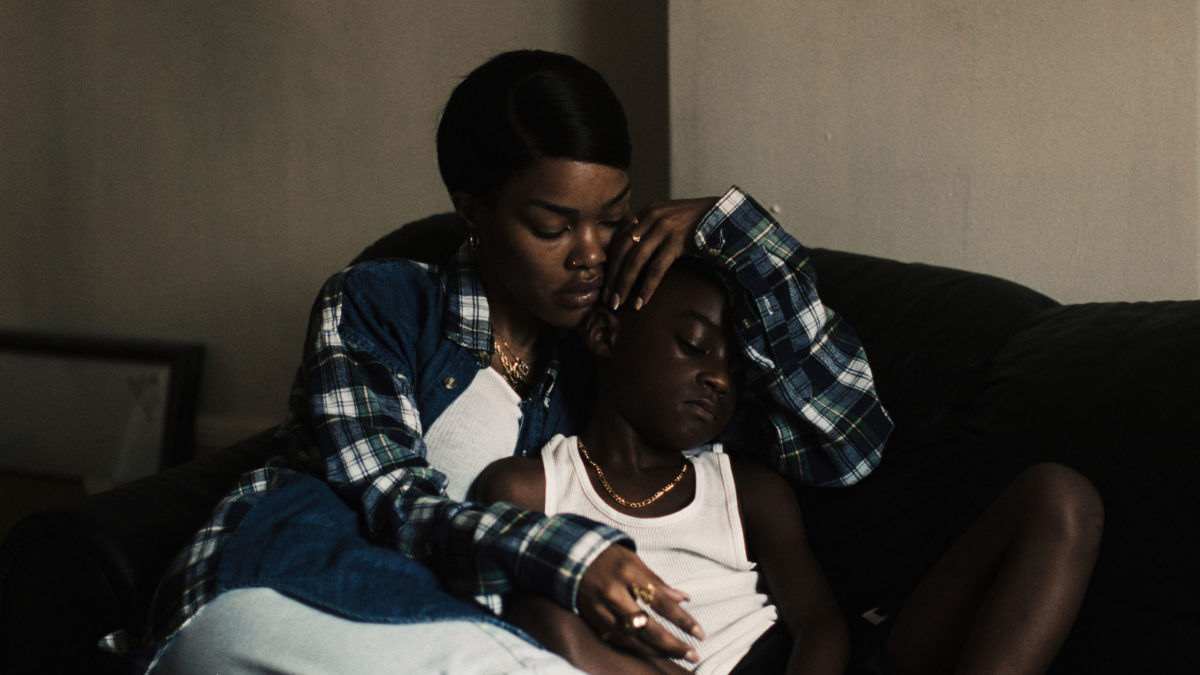
It’s a story about doing the wrong thing for the right reasons. Inez (Teyana Taylor) spent her entire life trying to overcome circumstances that her city did more to facilitate than help expunge. So, of course she’d do everything possible to give her son Terry the chances she never had, protecting him from a system built to steal all hope the Black American Dream might hold. What we can’t know until a powerhouse final sequence between Taylor and Josiah Cross (Terry at seventeen) is exactly what she did. Because as Taylor and William Catlett’s Lucky explain a few scenes prior, love is a complicated emotion for damaged souls. That which seems familiar on the surface of A.V. Rockwell’s A Thousand and One is thus solely a framework upon which she digs beneath stereotypes to unearth the difficult truths within.
9. The Zone of Interest (Jonathan Glazer)
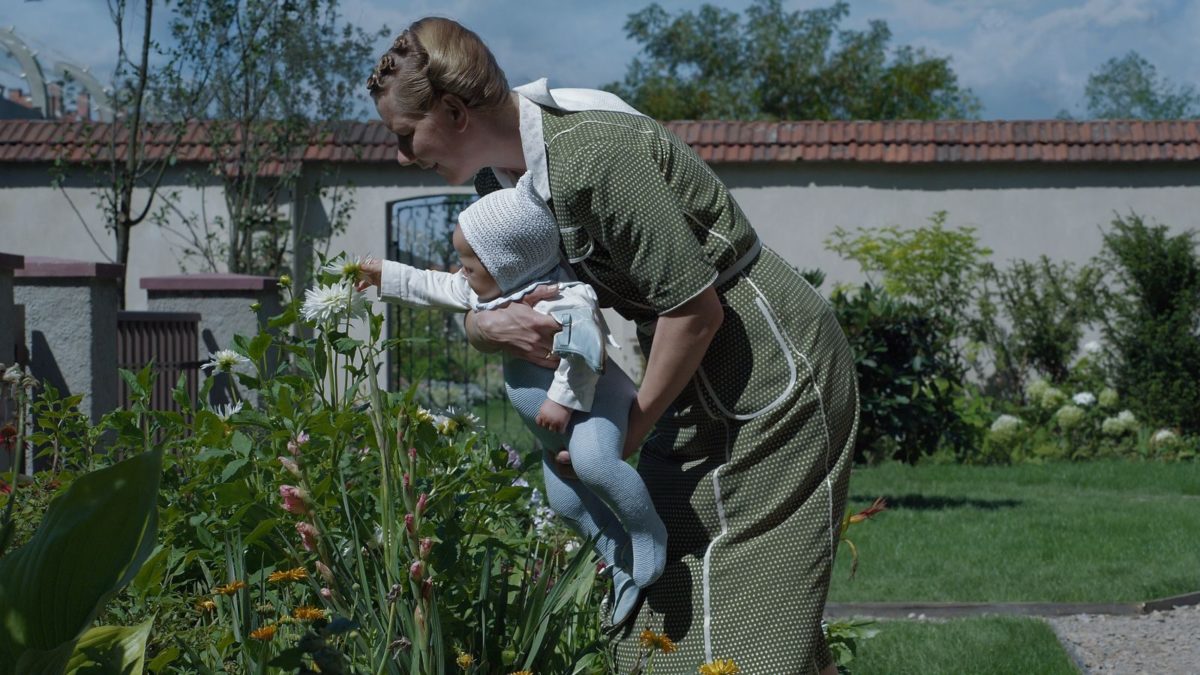
I’m not sure how long my brain needed to filter out our neighborhood train. Its sensorial input was simply discarded along the way. Knowing the ease at which this phenomenon occurs ensures that the scenes of Rudolf (Christian Friedel) and Hedwig Höss (Sandra Hüller) sleeping soundly at night prove the most disturbing part of Jonathan Glazer’s clinical dissection of evil’s banality, The Zone of Interest. Not those instances wherein these monsters cruelly engage with the genocide complicitly unfolding on the other side of their garden wall, but the reality that the resulting screams and wrenching metal have been completely redacted. Sound therefore becomes crucial to the film’s potency, both through the physiological impact of newcomers hearing these horrors and the inherent context of their absence somewhere else. It’s also why today’s reverent silence at Auschwitz proves too deafening to ignore.
8. Killers of the Flower Moon (Martin Scorsese)
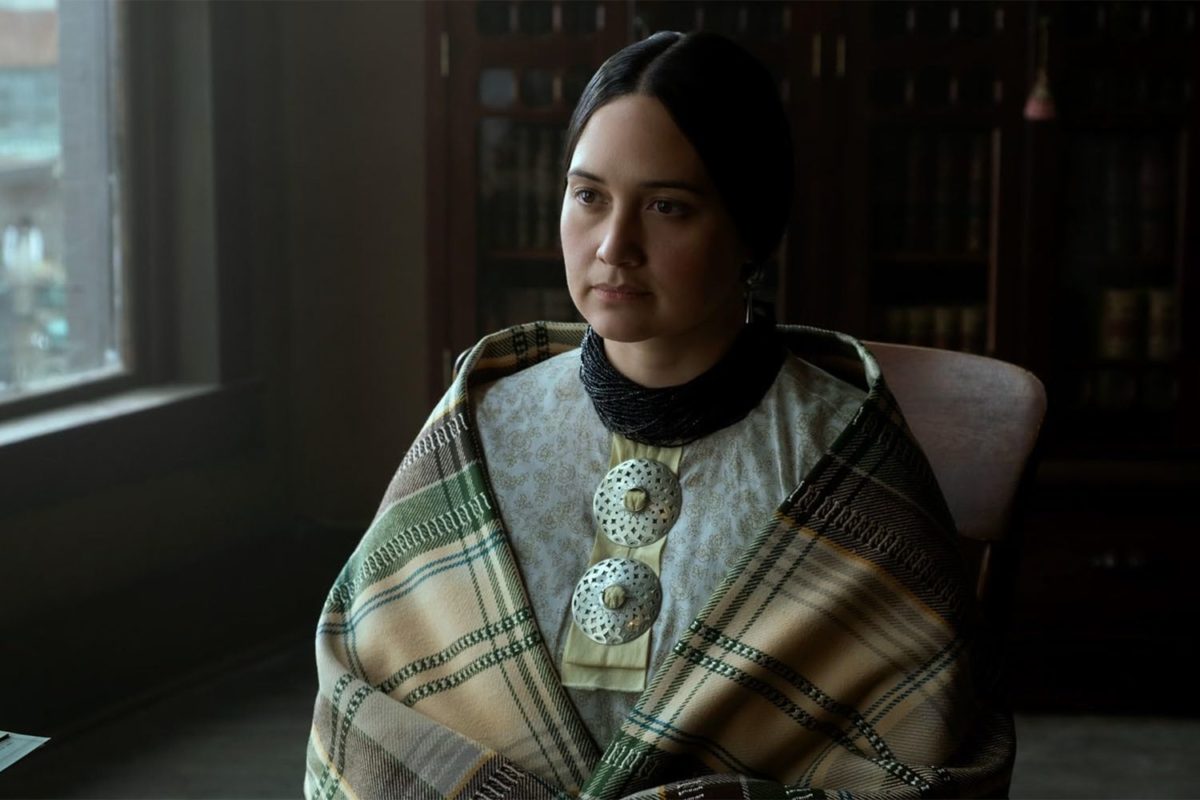
It’s interesting to think what Martin Scorsese’s Killers of the Flower Moon might have originally been. David Grann’s book centers Agent Tom White—the man J. Edgar Hoover sent to solve the Osage murders of Native men and women at the hands of white interlopers seeking their oil wealth. While surely a compelling angle, shifting focus onto one of those white murderers (Leonardo DiCaprio’s Ernest Burkhart) instead ultimately transforms the whole into the sort of organized crime outfit for which Scorsese excels. It also erases the potential “white savior” label by becoming a condemnation of and admission of complicity by white America. Helped by award-worthy turns of villainy (a menacing Robert De Niro) and strength (a devastating Lily Gladstone), the result should likely find itself hailed as one of the most important American films this decade (if not the entire century).
7. The Promised Land (Nikolaj Arcel)
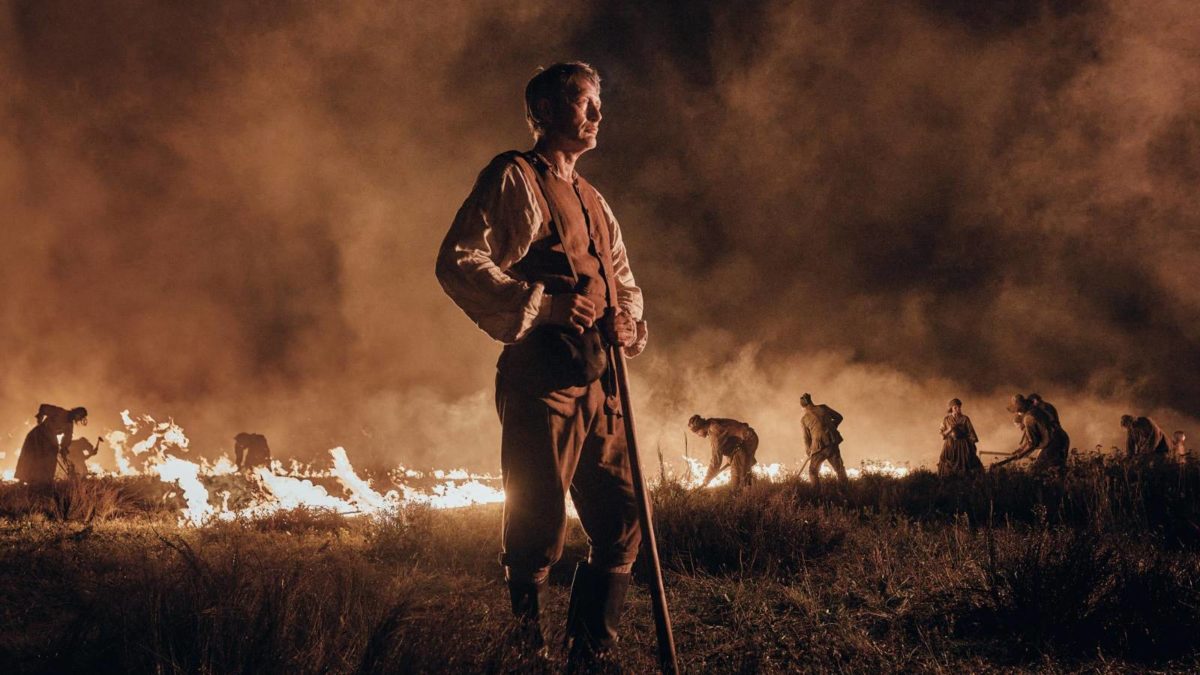
While The Promised Land lives up to its synopsis’s revenger billing, its target proves much bigger. I’m not ignoring the feud pitting Mads Mikkelsen’s seething rage against Simon Bennebjerg’s smugly indignant smirk. I’m just saying their fight isn’t so specific despite being so personal. The confusion isn’t solely ours, though. Director Nikolaj Arcel and co-writer Anders Thomas Jensen (adapting Ida Jessen) clearly portray that Mikkelsen’s Kahlen doesn’t know either. He also thinks his battle is about what he’s owed and that Bennebjerg’s Schinkel is the latest man standing in his way. It’s only through love that he realizes his immovable goals can’t change his past just like his fealty to Denmark won’t change his present. So, rather than blindly feed the system that spurned him, he might yet choose a better path. One where honor and wealth don’t require paper.
6. Past Lives (Celine Song)
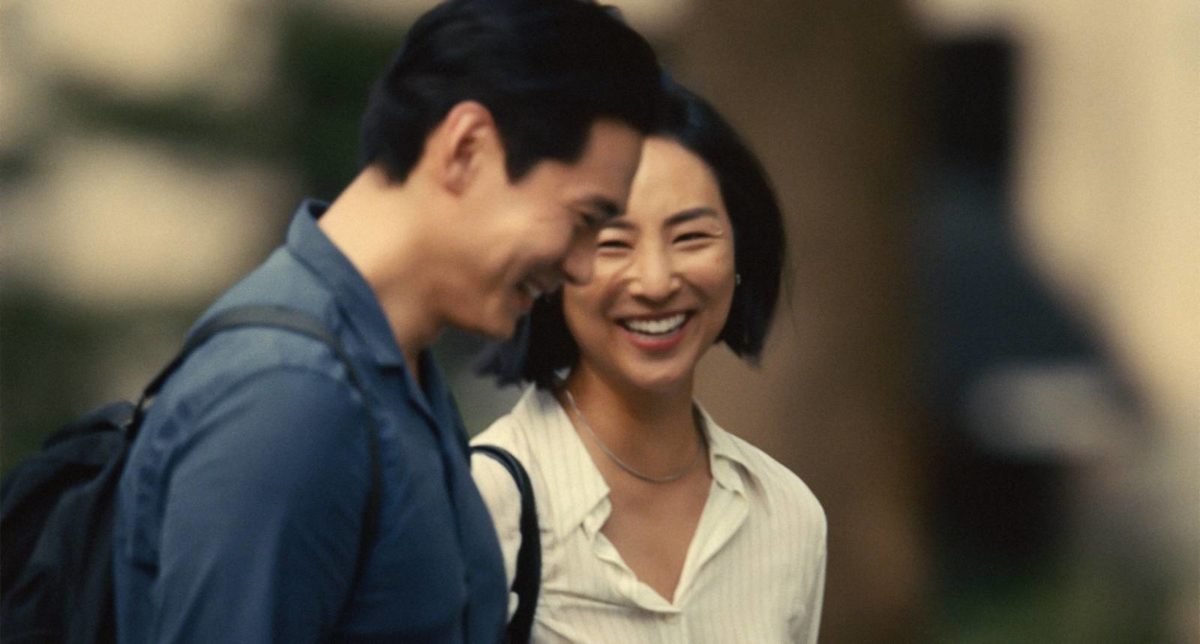
Celine Song’s Past Lives is a vibrant love story out of time. Not through some science fiction conceit, but the fact that life isn’t always conducive to today’s love. Maybe things will change. Maybe a second chance arrives in another life … or a hundredth depending on where this one lands. Song pushes conventional Hollywood romance to the background, providing room for the “what ifs” that define us all. Not to present Greta Lee’s Nora and Teo Yoo’s Hae Sung hindsight for course correction. Nor to haunt them. This parallel journey is meant to remind us that the feelings they shared (and still share regardless of everything) were real. They are true. Jealousy therefore proves unnecessary (see John Magaro’s introspection) because the film isn’t about winning or losing. It simply epitomizes the melancholic result of fate colliding with free will.
5. Nimona (Nick Bruno & Troy Quane)
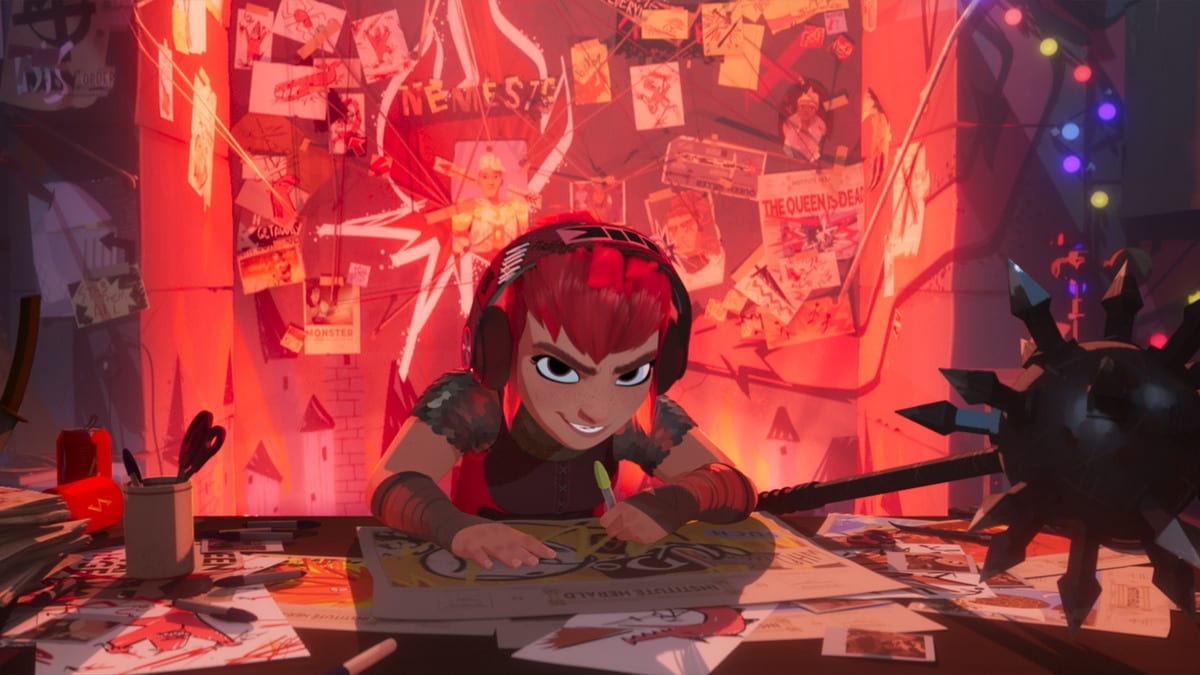
So many family films look to educate children about dissolving their hate, but few actually expose how culture and media taught them where to target it in the first place. Beyond the great LGBTQ+ themes and examples of a socio-economic disparity brought on by “blood purity” and legacy that prop up Nimona‘s politics lies a story within a story about an indoctrinated young girl who’s exploited and transformed into a glorious hero able to secure control and wealth for the storytellers through fear. That’s the poignant origin point of this gorgeously animated adaptation of ND Stevenson’s Eisner-winning, sci-fi-meets-medieval comic that results in laugh-out-loud irreverence and heartfelt hope for a better, brighter, and inclusive world. And it resonates so strongly right now because way too many of us still refuse to ask one crucial question: “What if we’ve always been wrong?”
4. Knock at the Cabin (M. Night Shyamalan)
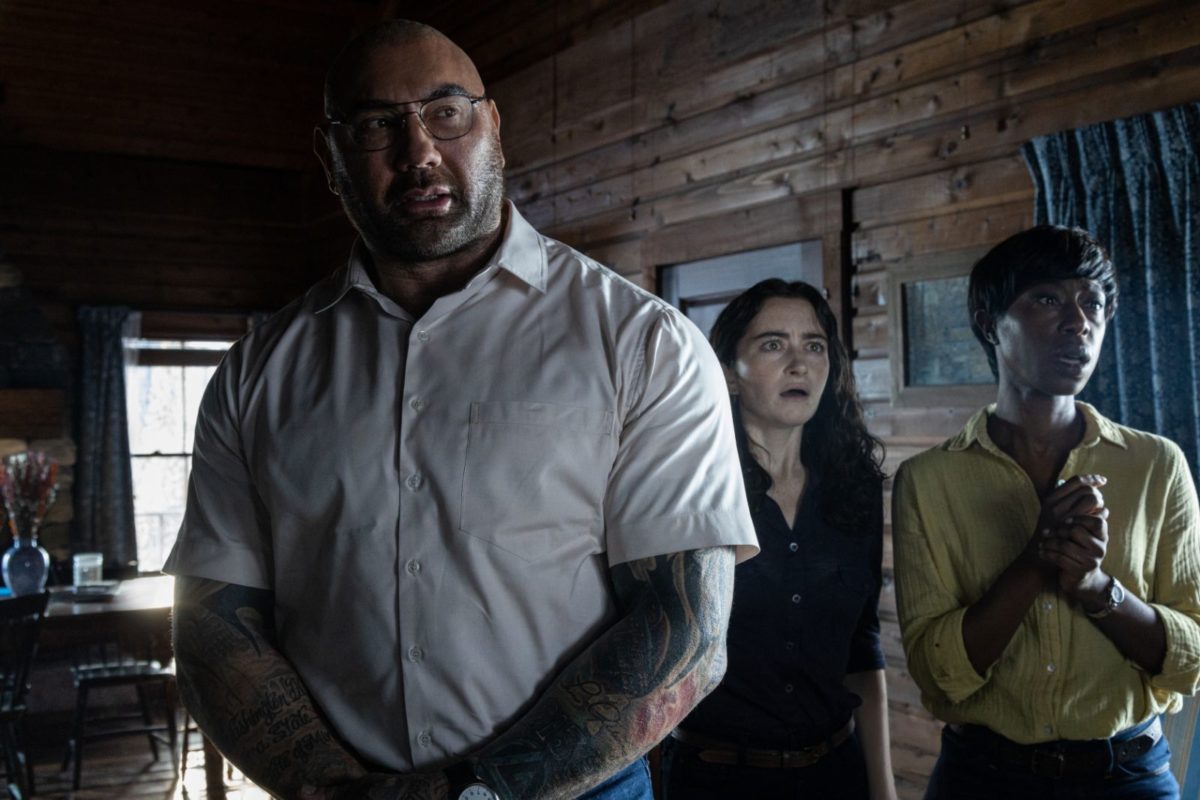
Everything that makes The Village my favorite M. Night Shyamalan film exists within Knock at the Cabin, his adaptation of Paul Tremblay’s novel. Impeccable blocking allows his shallow focus and camera pans to build suspense while his extreme close-ups supply the emotional weight shouldered by each character once their love proves humanity’s last hope for survival amidst a reality mired in hate. Ben Aldridge and Jonathan Groff bring us into their hearts even as they try steeling themselves to what becomes increasingly true in their minds, but it’s Dave Bautista who astounds with an achingly beautiful empathy made purer by the incongruous juxtaposition of his physical stature. And despite my usual inclination towards open-ended interpretation, the potency of this tightly-wound morality tale hinges on its definitive answers. Providing them isn’t therefore a cop-out or twist. It’s quite literally the point.
3. How to Blow Up a Pipeline (Daniel Goldhaber)
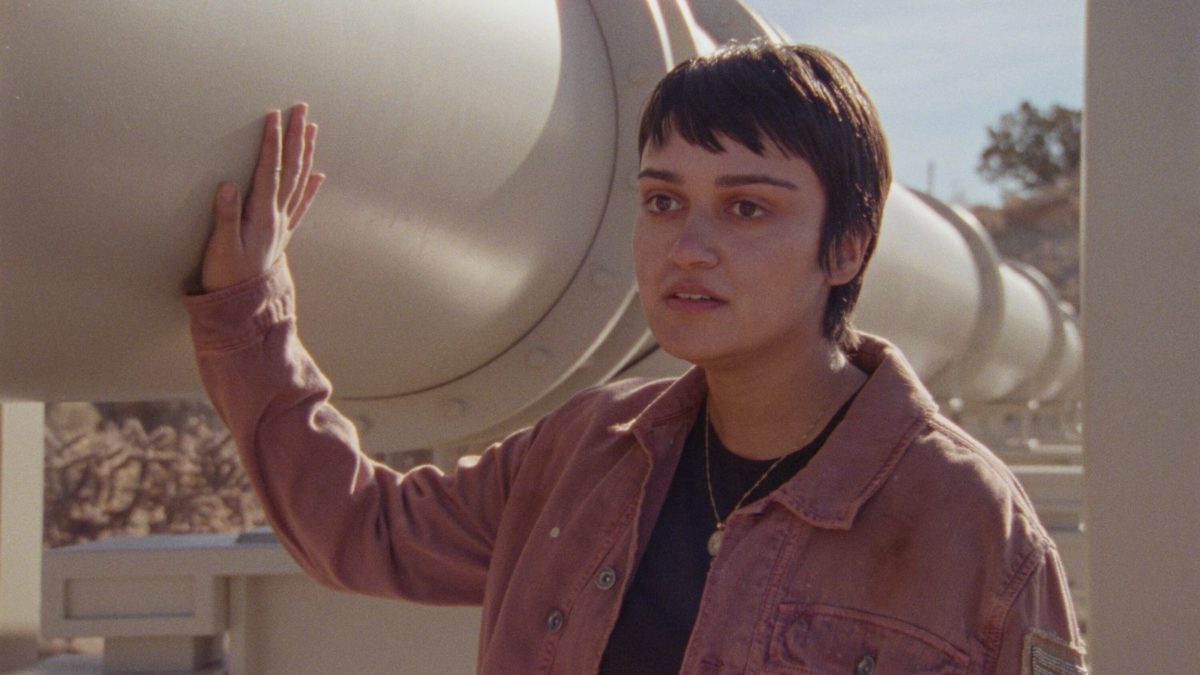
Fifteen months after declaring it my favorite of TIFF 2022, How to Blow Up a Pipeline remains one of the best of 2023. An inspired adaptation of Andreas Malm’s non-fiction, book-form argument criticizing today’s pacifistic climate activism by declaring sabotage its “logical” and necessary evolution, director Daniel Goldhaber and co-writers Ariela Barer (who also stars) and Jordan Sjol craft a heist thriller depicting a band of amateur revolutionaries who are determined to give his words life. It’s a tense, often-funny, and exhilarating single-day roller coaster ride utilizing meticulously planned flashbacks to simultaneously deliver exposition and ignite mystery. Yet nothing I say will prove a superior pitch than both the US and Canadian governments issuing warnings that the film might potentially inspire real-life terrorist attacks by radicalizing its audience. That, my friends, is the fearsome power of great art in action.
2. The Holdovers (Alexander Payne)
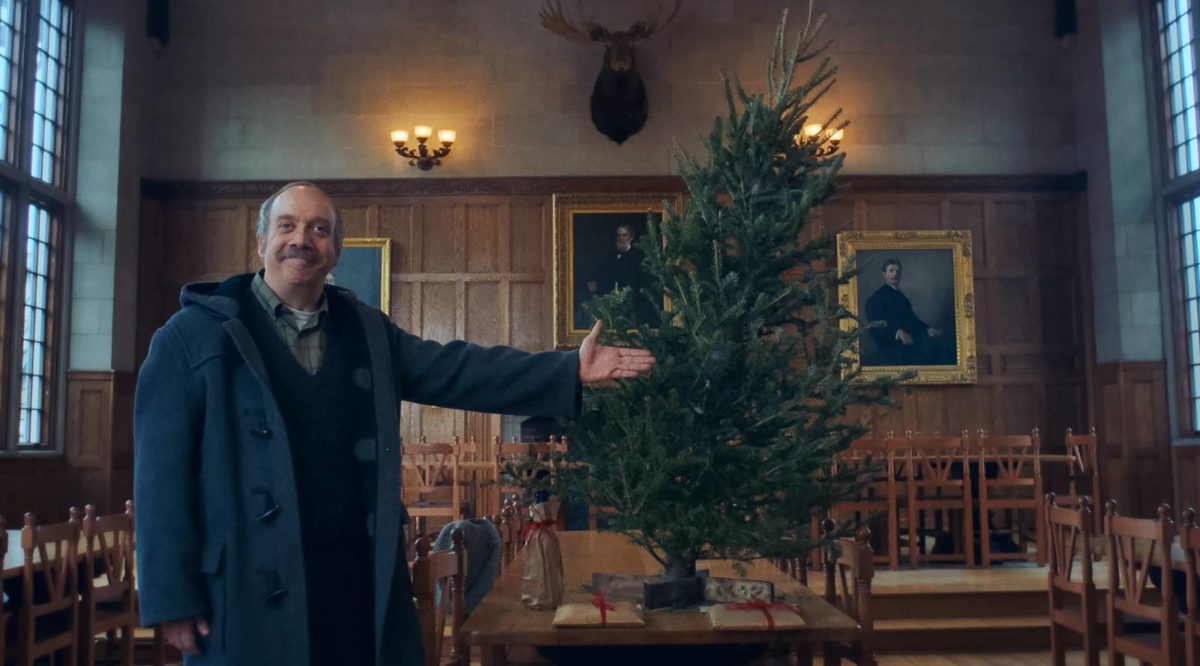
Move over Ebenezer Scrooge. Christmas belongs to ol’ “Wall-eye.” Paul Giamatti’s Paul Hunham may not be rich, but he does revel in misfortune—especially that of the privileged, entitled students in his ancient civilizations class. And rather than three ghosts reminding him empathy isn’t conditional, his awakening arrives via a grieving mother (the unforgettable Da’Vine Joy Randolph) and an impertinent teen (Dominic Sessa’s memorable debut) whose mirrored disposition could render him Paul’s Ghost of Christmas Past and Paul his Ghost of Christmas Future. It’s a dynamic ripe for comedy and Oscar nominations thanks to the heartfelt wit of David Hemingson’s script and director Alexander Payne delivering his best work since Sideways. More than that, however, The Holdovers also exemplifies the power to see beyond the pain people cause to recognize the pain they’re in. Because, odds are, you feel it too.
1. All of Us Strangers (Andrew Haigh)
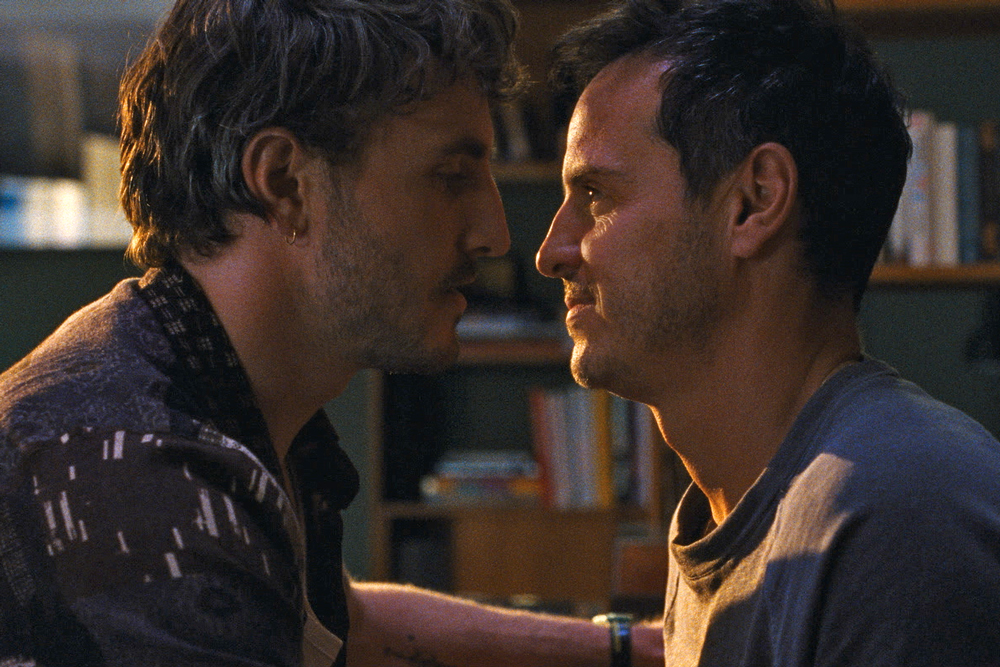
Despite many great 2023 films, Andrew Haigh’s All of Us Strangers stands above with an emotional breadth that gives weight to the idea we all exist alone … together. With a stunning central performance from Andrew Scott (equalled by his co-stars Paul Mescal, Jamie Bell, and Claire Foy), this tale of a troubled soul reaching back to find the courage to be vulnerable in the present proves as beautifully tragic as it does tragically hopeful. Haigh brings the supernatural premise of Taichi Yamada’s source novel into the metaphysical realm, exorcising Scott’s character’s pain and desperation. Because while our memories and dreams can impact our physical selves, supplying them life mustn’t always cost us our own via regret. Doing so can also set us free by reminding us to cherish that which we loved rather than simply lamenting its subsequent loss.
